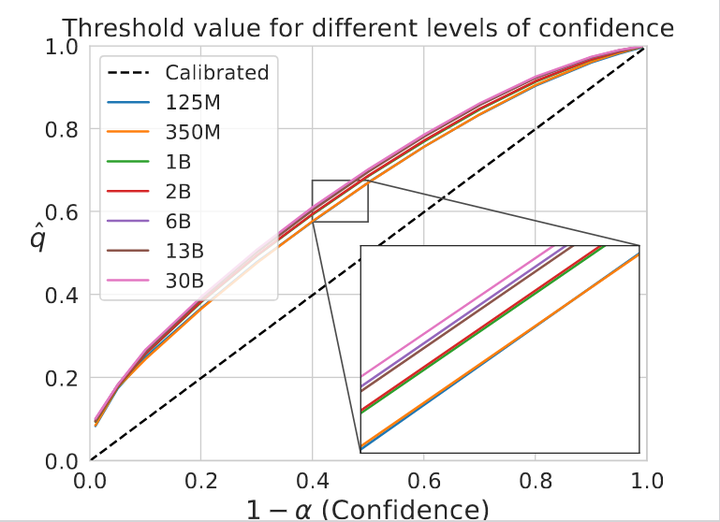 Cabliration vs. model scale.
Cabliration vs. model scale.Abstract
Language models generate text based on successively sampling the next word. A decoding procedure based on nucleus (top-$p$) sampling chooses from the smallest possible set of words whose cumulative probability exceeds the probability $p$. In this work, we assess whether a top-$p$ set is indeed aligned with its probabilistic meaning in various linguistic contexts. We employ conformal prediction, a calibration procedure that focuses on the construction of minimal prediction sets according to a desired confidence level, to calibrate the parameter $p$ as a function of the entropy of the next word distribution. We find that OPT models are overconfident, and that calibration shows a moderate inverse scaling with model size.
Type
Publication
Conformal Nucleus Sampling